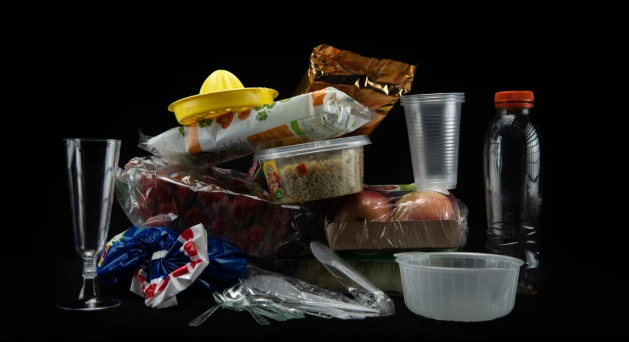A recent study published on Tuesday reveals that over 3,600 chemicals used in food packaging or preparation have been detected in human bodies. This includes some substances deemed hazardous to health, while the effects of many others remain unclear.
Birgit Geueke, lead author of the study from the Food Packaging Forum Foundation, highlighted that around 100 of these chemicals are considered “high concern” for human health. While chemicals like PFAS (per- and polyfluoroalkyl substances) and bisphenol A, which have been the subject of bans, are relatively well-studied, little is known about the health impacts of many others. Geueke called for further research into how these chemicals migrate from packaging into food and subsequently into the human body.
The researchers had previously catalogued approximately 14,000 food contact chemicals (FCCs), which can migrate into food from packaging made of materials such as plastic, paper, glass, and metal, or from other parts of the food production process like conveyor belts or kitchen utensils. When they examined existing biomonitoring databases that track chemicals in human samples, they unexpectedly found 3,601 FCCs—about a quarter of all known FCCs.
Geueke noted that the study could not confirm that all these chemicals came from food packaging alone, as other sources of exposure are possible. Among the chemicals of high concern were numerous PFAS, often referred to as “forever chemicals,” which have been linked to various health issues. Bisphenol A, a hormone-disrupting chemical used in plastics, has been banned from baby bottles in many countries, while phthalates, another hormone disruptor, have been associated with infertility. The study also identified oligomers, byproducts of plastic production, about which there is limited evidence regarding their health effects.
“There is almost no evidence on the health effects of these chemicals,” Geueke said.
In response to the study’s findings, Birgit Geueke from the Food Packaging Forum Foundation recommended reducing contact time with food packaging and avoiding heating food in its packaging. Geueke emphasized that while the study could not determine the concentration levels of these chemicals, their potential interactions, such as a sample containing up to 30 different PFAS, could be concerning.
Duane Mellor, an expert in evidence-based medicine at Aston University who was not involved in the research, commended the study as a “very thorough piece of work.” However, he noted that it does not address the levels of exposure to these chemicals or other environmental sources. Mellor advised against becoming “unduly alarmed” and encouraged people to seek better data and minimize unnecessary exposure to potentially harmful chemicals.
The study, published in the *Journal of Exposure Science and Environmental Epidemiology*, also noted that some of the identified chemicals are already facing regulatory action. The European Union is nearing a ban on PFAS in food packaging and has proposed a similar ban on bisphenol A, set to take effect at the end of the year.



